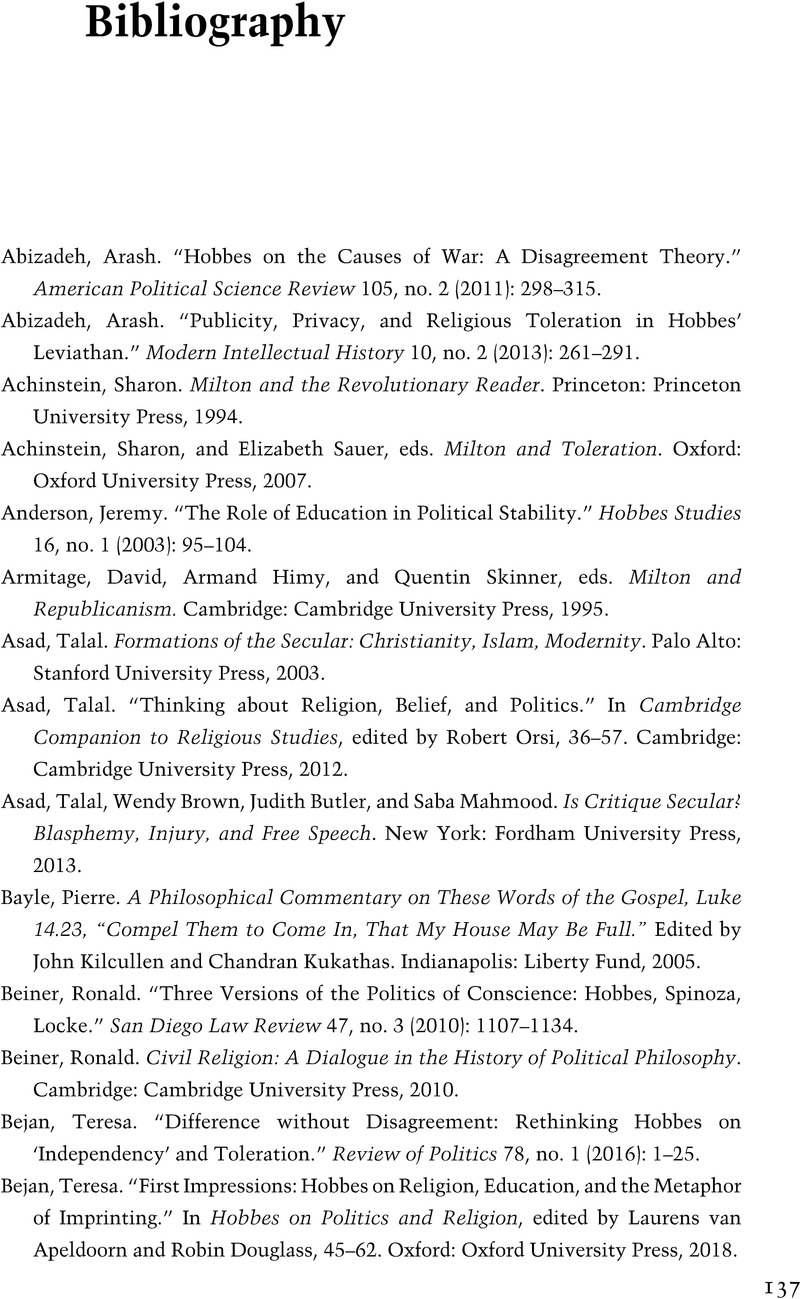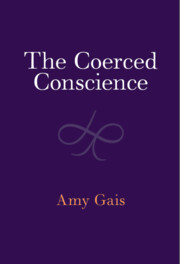Book contents
- The Coerced Conscience
- The Coerced Conscience
- Copyright page
- Dedication
- Epigraph
- Contents
- Acknowledgments
- A Note on Texts and Abbreviations
- 1 A New Kind of Politics?
- 2 John Milton and Expressive Conscience
- 3 Thomas Hobbes and Instilled Conscience
- 4 Baruch Spinoza and Conscientious Speech
- 5 Pierre Bayle and Tormented Conscience
- 6 The Politics of Conscience
- Bibliography
- Index
- References
Bibliography
Published online by Cambridge University Press: 07 December 2023
- The Coerced Conscience
- The Coerced Conscience
- Copyright page
- Dedication
- Epigraph
- Contents
- Acknowledgments
- A Note on Texts and Abbreviations
- 1 A New Kind of Politics?
- 2 John Milton and Expressive Conscience
- 3 Thomas Hobbes and Instilled Conscience
- 4 Baruch Spinoza and Conscientious Speech
- 5 Pierre Bayle and Tormented Conscience
- 6 The Politics of Conscience
- Bibliography
- Index
- References
Summary

- Type
- Chapter
- Information
- The Coerced Conscience , pp. 137 - 147Publisher: Cambridge University PressPrint publication year: 2023

